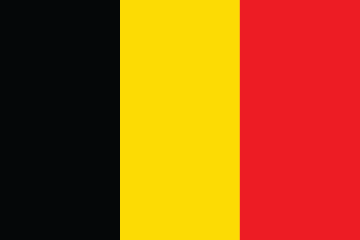
Compulsory Education Age
6–17 (may opt for part-time compulsory education at age 15)
Number of Homeschoolers
Unknown
Legal Status
Homeschooling is legal in Belgium. Education is compulsory, but school attendance is not. Article 24 of the Belgian Constitution offers parents “free choice” with regard to the education of their children. Since Belgium is divided into three
language communities, further regulations on home education come from the regional level. Please see below for specific homeschool requirements in the Flemish, French, and German-speaking communities.
Belgium (Flemish Community)
Although the federal act of June 29, 1983 (Leerplichtwet) is often translated as the Compulsory School Attendance Act, it would be more accurately referred to as the Compulsory Education Act. While it obliges all parents (residing foreigners as
well as Belgians) to have their children attend school for a period of twelve years, it equally clearly states that this obligation can also be met by home teaching. Thus, the freedom of education is extended beyond the right to found schools
to include the right to teach.
The parents (or the persons who have custody over the child) have to declare and affirm that the education that they will give or have given by others, meets the minimum requirements laid down in the Act. Parents who opt for home education must notify the Department of Education and Training in writing on the day home education commences at the latest. They must undertake to provide education that meets the following minimum requirements:
- The education provided is aimed at the development of the child's full personality and talents, and at preparing the child for active adult life;
- The education provided promotes respect for basic human rights and for the cultural values of the child himself and of others.
- The Education Inspectorate has the authority to check whether or not the home education provided complies with the objectives described.
They are responsible for the cost and practical organization of homeschooling. Additionally, the Flemish Education Inspection has been empowered (albeit with only a ‘marginal discretion’) to verify whether the standards are indeed
being met. A refusal to allow an inspection or two consecutive negative evaluations can result in a mandatory enrollment of the child in an accepted, financed, or subsidized school. However, the home teaching can resume with the permission
of the Inspection and after verification that all shortcomings have been dealt with.
Parents who provide home teaching are not able to provide official diplomas. In order to get the certificate of primary education or the diploma of secondary education, the children who were homeschooled will have to, respectively, pass an exam
in one of the ten designated ‘exam schools’, or pass the exams of the Exam Commission.
Homeschooling or home teaching is not to be confused with education at home (onderwijs aan huis), which is a public service that is made available for pupils both in primary and secondary schools. Pupils who are temporarily (but for a longer period)
unable to attend lessons at school because of illness or accident have the right to be taught at home. The same right is granted to children who are permanently incapable of attending school because of a handicap.
Belgium (French Community)
Home teaching is authorized if it meets specific requirements in order to comply with those for compulsory education (Decree of April 2008). Families wishing to homeschool should submit an annual notice of their intent to homeschool by October
1 (Article 8, Lois 09676 of 20/08/1957). The notice may be submitted after October 1 if a student moves into the French-speaking community during the school year. Home education is further governed by a decree from Apr 25, 2008, which explains when and how students must be examined. In addition to Belgian citizens, we have recently heard that foreign families are also being
contacted with regard to testing.
Belgium (German Community)
Parents have the right to teach their children at home within the freedom of education (Hausunterricht). They have to comply with legal provisions and the Minister's inspectorate. Leaving certificates can only be granted by the Prüfungsausschuss
of the Gemeinschaft.
Home education is legal within the German-speaking community. Homeschooling is governed by §6 of the Compulsory Education Act of June 29, 1983, as well as the School Pact law of May 29, 1959. Homeschooled students must
be registered with the Ministry of Education by September 30th of each year. Parents must guarantee that their children will receive proper instruction and submit to the oversight of the school inspectorate. Homeschooled children may only
be awarded the Primary Education Final Certificate by passing an examination before the school external Examination Board of the German-speaking Community (Prüfungsausschuss der Deutschsprachigen Gemeinschaft).
Contact Information
Maija Besky
Email: mbesky@yahoo.com

